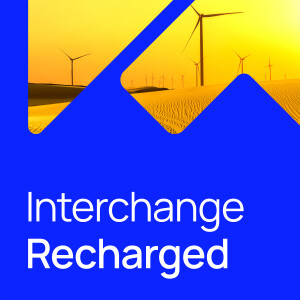
The array of AI applications within climate tech is staggering -- and rapidly expanding.
There are lots of exciting point solutions, but there’s no clear example of AI directly and meaningfully reducing GHG emissions on a global scale. Yet.
Last year we had Priya Donti on the show. She’s a PhD student at Carnegie Mellon and co-chair of the Climate Change AI organization. This week, she came back with her Climate Change AI colleague Lynn Kaack, a postdoc researcher at ETH-Zurich.
Priya and Lynn were co-authors on a blockbuster paper on the topic back in June 2019, called “Tackling climate change with machine learning.”
They came back on the show to talk about what has changed since that episode -- both the progress and the bottlenecks in applying AI to climate change.
They detail the strengths and weaknesses of AI in climate technology using a few case studies:
- Optimizing power and heating/cooling systems
- Insight into large bodies of data, such as analyzing the physical and transition risk to a company’s assets
- Accelerating technology innovation
They also discuss the organizational approaches to AI: Do you go vertical or horizontal? That is, do you hire AI practitioners to work within an organization with deep domain experience, such as a utility, or is it more effective to leave those challenges to an organization of AI generalists who work across many fields?
Lynn points out there’s a third way: spinning up an AI group within an organization.
The Interchange is brought to you by Smarter Grid Solutions, a leading enterprise energy management software company. Find out how Smarter Grid Solutions’ software can give you real control over your clean energy assets at sgsderms.com/interchange.
The Interchange is brought to you by Enel X, a leader in energy storage, DER management software, and smart electric vehicle charging stations to increase project value. Learn what Enel X can do for your business.
More Episodes
 2018-11-12
2018-11-12
 2018-11-05
2018-11-05
 2018-10-30
2018-10-30
 2018-10-15
2018-10-15
 2018-10-02
2018-10-02
 2018-09-26
2018-09-26
 2018-09-06
2018-09-06
 2018-08-14
2018-08-14
 2018-07-17
2018-07-17
Create your
podcast in
minutes
- Full-featured podcast site
- Unlimited storage and bandwidth
- Comprehensive podcast stats
- Distribute to Apple Podcasts, Spotify, and more
- Make money with your podcast
It is Free
- Privacy Policy
- Cookie Policy
- Terms of Use
- Consent Preferences
- Copyright © 2015-2024 Podbean.com





